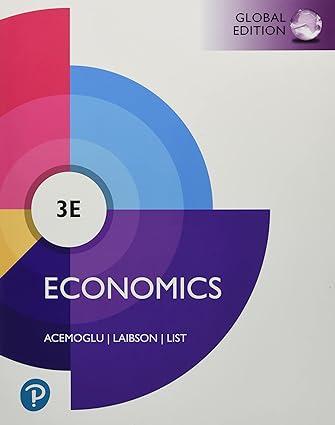In the second Evidence-Based Economic module, we discussed how Philip Oreopoulos used a natural experiment involving compulsory
Question:
In the second Evidence-Based Economic module, we discussed how Philip Oreopoulos used a natural experiment involving compulsory schooling laws to infer that the return to one additional year of schooling is a 10 percent increase in earnings. For this question, let’s assume that Oreopoulos’s 10 percent finding is correct and applies to all people in all circumstances. (These are strong assumptions that are made for illustrative purposes.)
a. Compare two workers, one of whom has 12 years of schooling and one of whom has 18 years of schooling.
Assume these workers are otherwise identical. In percentage terms, how much higher will the earnings of the second worker be?
b. Suppose the first worker earns $50,000 per year. How much would the second worker earn in a year?
Step by Step Answer:

3E Economics
ISBN: 9781292411019
3rd Global Edition
Authors: Daron Acemoglu, David Laibson , John List






